It’s much easier to be a young person in a church full of other young people, and it’s no secret that some Uniting Church members are gravitating to younger, cooler denominations—or leaving church altogether. Rohan Salmond talks to some young people who have made the choice to stick around.
It’s a statistical oddity that one of Australia’s youngest denominations—the Uniting Church founded in 1977—also has the oldest members. According to 2011 National Church Life Survey data, 80 per cent of Uniting Church members are over the age of 50, compared to 65 per cent of Anglicans, 50 per cent of Baptists and just 27 per cent of Pentecostals.
Only seven per cent of Uniting Church members are between the ages of 15 and 30, which means Uniting Church youth and young adults who stay are choosing to participate in a community which does not always look like them. In fact, the 2013 Uniting Church census taken by the Assembly did not gather data on the number of churches with dedicated young adult ministries, suggesting that 15–30 year olds are a blind spot in the denomination’s vision for the future.
Graduating youth group
Alieta Molitika is 24 and a youth leader at Park Tongan Uniting Church in the inner suburbs of Brisbane. Her father is a Uniting Church minister, and she has worshipped in both Anglo and Tongan Uniting churches throughout her life.
“I think the stereotype of the Uniting Church is that it’s for old people. There aren’t many young people in roles, and I guess that’s what all the kids think, they think it’s just all about old people.
“But there’s much more to being Uniting than what is perceived by everyone. I guess that’s the sad thing, because it’s run by old people so the young ones don’t want to step up and take opportunities,” she says.
The lack of hard data makes it impossible to say definitively, but anecdotally—with a few notable exceptions—young adult ministries are uncommon in the Uniting Church. Instead, young adults often “graduate” from children’s or youth groups and take a leadership role in those same ministries which once served them.
Joyce Waia is 26 and a young leader at St Barnabas Uniting Church in Napranum, Cape York.
“I’ve been attending youth [groups] for seven years and I actually grew up in youth group. I’ve been among youth for a long time and I’ve had the opportunity to take over,” says Joyce.
It’s a mixed blessing. On the one hand, the opportunity to contribute to the church gives young people the chance to share their gifts and develop leadership skills. On the other, being a token young leader runs the risk of isolation as well as effectively heaping the responsibility for youth ministry on a few brave souls.
Brad Case, 28, moved from Glebe Road Uniting Church in Ipswich to Sherwood, Brisbane when he took a placement as youth and family worker.
“I grew up in a church surrounded by young people who helped form me and shape me,” says Brad, “But moving out of that space to another church where I was the only person between 16 and 35 was a bit of a different kettle of fish.
“I dearly love working with youth, but not having anyone my age to journey with was a bit rough, and it’s tough to balance the need for doing discipleship with your own age and serving God’s mission in the world.”
According to Alieta Molitika, traditionally it is unusual for young people to be entrusted with leadership roles in Tongan churches, but this is changing.
“This year I got elected to be the youth leader at church and at first I felt I was pressured into it, but mum and dad were like, ‘They nominated you so don’t say no!’ so I went into it.
“Everyone else was a lot older. I think for that time me and the assistant youth leader were probably the youngest people to ever lead the youth in that Tongan church so that was a challenge in itself,” Alieta says.
A little help, please?
Whether these young adults continue in other kinds of church leadership after they retire from running the youth group is unclear. There is no question that training and mentoring young leaders eases the feelings of isolation and prevents burnout, which in turn helps retain their talent in the church long into adulthood.
Joyce Waia is trying to manage the strains of leadership and maintain a healthy level of self-care. The challenges are even greater given the complex needs of a small Indigenous community.
“I’m a young one in the church for my age, in my twenties,” she says, “It’s pretty hard and difficult for me as I am the only one. I do have other youth but because they’re so young I’m trying not to put a lot of pressure on them. Being a leader is very, very hard and I’m trying not to stress myself out too much.”
Joyce recognises that she needs support, and she spent the last couple of months of 2014 undertaking leadership training at Indooroopilly Uniting in Brisbane’s western suburbs.
“I just don’t know enough. I needed to know more about ministering,” she says.
“I [also] get support from my minister, Uncle Palmer … he’s encouraged me along and I get encouragement from my church too … [The Uniting Aboriginal and Islander Christian Congress] has given heaps and heaps of support for young people and I’ve been pushing things ahead. I think they’ve supported me very well.”
At a national level, emerging leaders are fostered by the Uniting Church Assembly through the biennial National Young Adult Leaders’ Conference (NYALC). Sixty Uniting Church young adult leaders from across Australia converged on Sydney in December last year for training and building networks.
Brad Case says events like NYALC are crucial.
“Encouraging young people’s gifts is always important. We’re not the worst at it, but we can always do better. Helping young people discover a sense of belonging to the church and creating avenues for them to serve is probably the greatest encouragement of all,” he says.
“The encouragement factor is a big thing, but so is advocacy. Standing up for young people in our churches and gracefully shouldering the weight of criticism and negativity that’s sometimes aimed at them is really important. If we don’t look after them well, their faith journey could be halted before it starts. Encouragement and advocacy are vital for our young people.”
Why I stay
Uniting Church young adults are passionate about their denomination and the things that make it unique. Alieta is particularly enthusiastic about the cross-cultural aspect of the Uniting Church.
“Young people need to step up because it’s an awesome church, it’s so diverse. Everyone just being able to all connect in the one place,” she says.
“We really care for people outside the church, like through UnitingWorld and all that. I guess if younger kids knew all this they would want to be more a part of it.”
Brad is equally passionate about his church, and believes the Uniting Church has reached a point where decisions must be made.
“I think there’s actually a point right now where the church can look at itself and say ‘What do we want to be in the future? Who do we want to be, what do we want to do?’ That means we need to be encouraging our young people to be free in their creative ways to express faith and allow ourselves to let go of what we believe we own,” he says.
“The Uniting Church has ruined me for anything else. I stick around because of our public liturgy on justice issues and how we love mercy and walk humbly with our God. We have open table communion and do faith with others on the way. It’s not perfect, and no church is, but it’s the church I love.”
 JourneyOnline
JourneyOnline
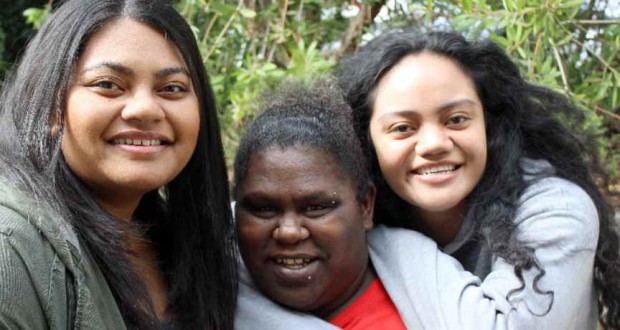

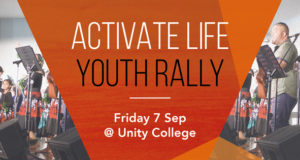
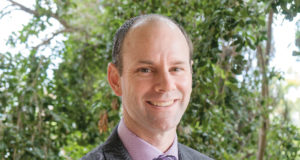
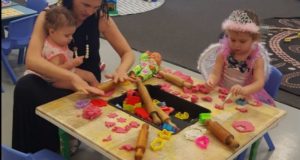


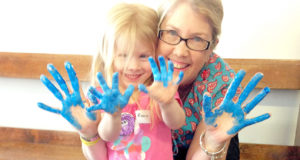
Spot on. I came into the church in SA as an 18-year-old after a couple of years in a youth group and quickly found myself running said youth group with the only other guy between the ages of 18 and 40.
It sounds counter-intuitive at first, but older people making such a fuss when a young person visits or starts attending a church can actually be a barrier to inclusion – if you’re always special, everyone’s always so amazed that you’re even there, it is hard to feel like part of the herd.
My wife and I are now at a church where we’re virtually the only under-50s, and have attended services there for about three years, but still get called “visitors” because we attend a couple of times a month rather than once per week.
Hi Peri. Thanks for sharing your experiences. Doesn’t it make you want to rip your hair out!
*Still being treated like a new comer after 3 years!
*Not being seen as one of the family but as a unique and fascinating creature!
*You are young so you must be the one to run our youth ministry!
Soooo frustrating. We’ve got to do better than this!
But a big pat on the back to you for hanging in there at church and making peace with the imperfections as best you can.
Tom Kerr